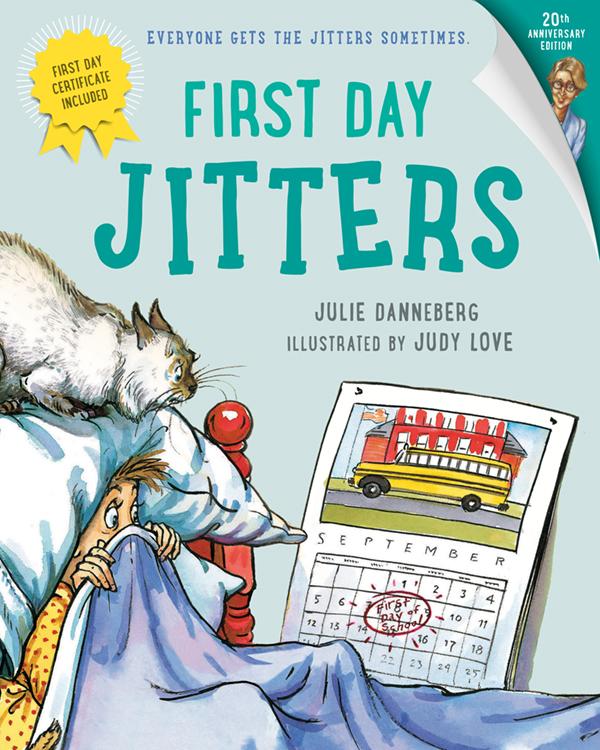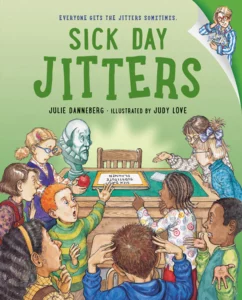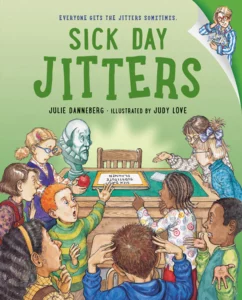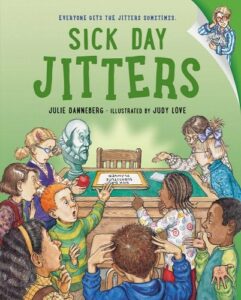
Whenever I talk to students, whether in my own class or during school visits, I’m inevitably asked how my book, First Day Jitters, came into being.
The answer is simple. I owe it all to a timed writing assignment!
Over twenty years ago, my class and I were doing a 10 minute quick write on the topic of “school.” Students could write anything they wanted. It could be true or untrue, funny, or serious, a collection of memories or a made-up story. The only requirement was that they had to write until the timer went off. When they were done, they could share with the class if they wanted but they knew that it wasn’t graded, and it wasn’t going to be turned in. They knew it was just for fun. Just for practice. And if something else came out of it, all the better.
I started writing about a child being nervous on the first day of school. (Yes, I know. Very predictable. But that is the fun of timed writing. No judgement.) Near the end of the story though, I got stuck. I had written a big build up describing the child’s nerves before school but didn’t know how to end it. Nevertheless, I kept my pen moving. What would happen once the child got to school? Would he cry? Would he see a friend? Would the teacher know just what to do? I kept writing and just before the timer rang, I wrote my last line
Done!
A surprise ending that surprised me when I wrote it.
Here is the important part of this writing story. I hadn’t set out, 10 minutes earlier, to write about a teacher being nervous on the first day of school. But that is what the story ended up being. It wasn’t planned. It wasn’t charted out. It truly was a surprise.
So why does this matter?
We, as writers, truly do have unlimited creativity. And most often, that creativity is accessed when we aren’t trying. How many times have you heard about people getting their genius idea in the shower, or while washing dishes, or when taking a walk? Timed writing is one way to give that creative, unexpected, unplanned thinking free rein. To just let your imagination, and your story, go where it wants, to trust that it might lead you in surprising directions. The trick is to let go of the control long enough to see what happens. And, truthfully, a lot of times nothing does happen. But sometimes, something does. Sometimes it is the germ of a story, the invention of a new character or a surprise ending that begs to be made into a book.
This kind of low stakes, creative writing is a fun way to get students, and yourself, to engage in writing practice. Which ultimately makes you a better writer in the long run! And might even surprise you in the short run!


